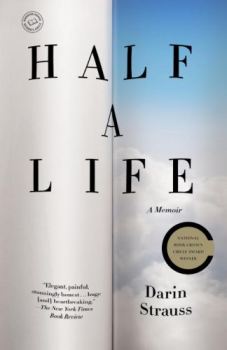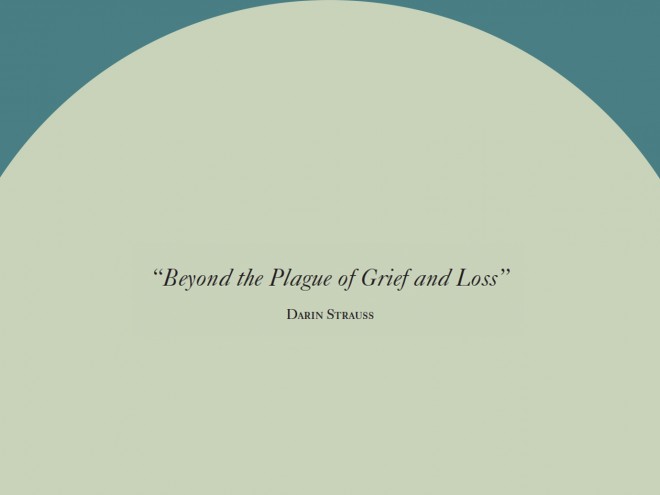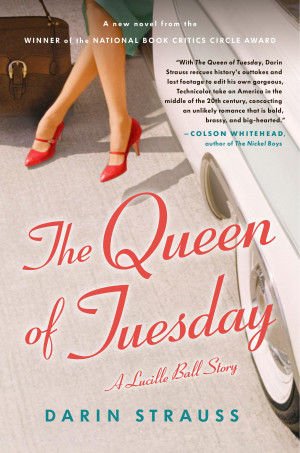Earlier this week, Darin Strauss wrote about wrestling with faith and about what we believe. He has been blogging all week for the Jewish Book Council and MyJewishLearning.
 Last week, the American Jewish Committee renounced a statement made by one of its staffers. The AJC’s Director on Anti-Semitism suggested that some Israel supporters are distorting the 1964 Civil Rights Act when they argue that colleges – that hire anti-Israel professors and support anti-Israel rallies – are in violation of the law. The Director said that the Israel supporters went too far.
Last week, the American Jewish Committee renounced a statement made by one of its staffers. The AJC’s Director on Anti-Semitism suggested that some Israel supporters are distorting the 1964 Civil Rights Act when they argue that colleges – that hire anti-Israel professors and support anti-Israel rallies – are in violation of the law. The Director said that the Israel supporters went too far.
I am a college professor and a Jew – and a supporter of the State of Israel – but the issue is too complicated for me to address directly, with anything like authority. But it did remind me — as it probably does you — of dealings I’ve had with relatives. The issue is too divisive to leave many Jewish families untouched.
In my case, I have relatives who will brook no criticism of any Israeli government. (And I’m sure they’d complain that I criticize Israel too quickly.)
I feel passionately about it. I have argued that current Likud policies are unjust and what’s more – though I don’t think there shouldn’t need to be a “what’s more” – strategically bad for Israel. For this criticism I’ve been asked: “Why do you hate Israel?” “Why are you a self-hating Jew.” Neither of these things is true about me: I don’t hate Israel and I’m not a self-hating Jew. (Well, there are things about myself I dislike, but Judaism isn’t among them.) The point isn’t just that any disapproval of Israel over any issue is taken for anti-Semitism; it’s that both sides are so emotional, and disagree so heartily about this when they agree on most other things.
As for me, I understand why my arguments drive my relatives crazy. The reasons are clear. 1) The other side is worse; Arab nations and the more radical Islamists among them are unreasonable, and frightening, and undoubtedly behave worse than Israel does. 2) There is a disproportionate response in world opinion; Israel is condemned for every misdemeanor it commits, while much more serious violator nations face no public opprobrium, at all. The reason seems to be anti-Semitism. 3) Israel has been attacked by belligerent neighbors and so needs the support of its supporters at all times.
These are all true. But it’s equally true that Israeli supporters in the U.S. often have a hard time admitting that hardships were suffered by Arabs during the 1948 War of Independence: that the Palestinian grievance is real. (Ironically, Israelis have come to terms with this – and are more honest about it – than we Americans are. Read any of the Israeli “New Historians.”) And it’s also true that, on the settlements issue, there is a lot of room for disagreement. Being critical of a particular government’s particular policy does not equal abandonment.
Again, I know the other side would disagree and call me naive. What strikes me is that, if we can’t agree among ourselves about it — if American, pro-Israel Jews are so divided — is it any wonder that the problem has persisted for over 50 years?
Darin Strauss is the author of Half a Life, More Than It Hurts You
, Chang and Eng
, and The Real McCoy
.
Darin Strauss’s most recent book, The Queen of Tuesday, came out in August 2020 and was a Washington Post best book of the year, among others. He’s also the author of the bestselling novels Chang & Eng, The Real McCoy, More Than It Hurts You, the NBCC-winning memoir Half a Life, and a bestselling comic-book series, Olivia Twist. These have been New York Times Notable Books; and Newsweek, Los Angeles Times, San Francisco Chronicle, Amazon, Chicago Tribune and NPR Best Books of the Year, among others.
The recipient of a Guggenheim Fellowship, a National Book Critics Circle Award, an American Library award, and numerous additional prizes, Strauss has been translated into fourteen languages and published in nineteen countries. In addition, Darin has collaborated on screenplays with Gary Oldman and Julie Taymor, and is a Clinical Professor of Fiction at New York University. He is currently a finalist for the Joyce Carol Oates Award.


